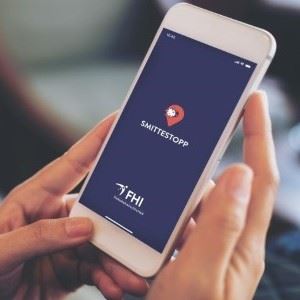GDPR in the Wake of COVID Spread: Privacy under Pressure – Part 2
Our previous blog post in this series concerned mobile phone applications under development, or already developed, in various countries for tracing the spread of COVID-19 infections. In particular the blog described the situation in Norway, and we expressed our concerns, but also our trust, in the fact that The Norwegian Data Protection Authority (‘Datatilsynet’) would be on the spot to safeguard privacy – as regulated by strict Norwegian privacy regulations.
The Norwegian Data Protection Authority — more than a watchdog

We were right, and we are proud of the intervention by the Norwegian Data Protection Authority (NDPA), which in June banned the Norwegian COVID-19 tracker app Smittestopp. The ban illustrates NDPA’s independency, and that NDPA has legal power to enforce privacy protection when public (and private) organizations violate the law.
This power is anchored in the Personal Data Act (personopplysningsloven), the Norwegian implementation of GDPR, and the Personal Data Regulations (personopplysningsforskriften).
After evaluating the app Smittestopp as it was implemented in April this year, NDPA concluded that the app violated the privacy legislation in mainly two respects:
- The app was not a proportionate intervention of the user’s fundamental right to data protection.
- The app was in conflict with the principle of data minimization.
On June 12, The NDPA notified The Norwegian Institute of Public Health (NIPH) that the app would be banned, which was confirmed on July 6. Consequently, NIPH immediately stopped collecting data from the around 600,000 active users of the app, and deleted all stored data on their Azure server.
What the requirement for proportional intervention means
The breach of the requirement for proportional intervention concerned the expected low value of the app regarding infection tracking, due to the relatively small number of the population in the testing areas actually using the app (only 16%).
The reason for the breach of the principle of data minimization was that the app was designed to cover three different purposes:
- Movement tracing of individuals (for research purposes).
- Spread of the infection among the population.
- The effectiveness of infection control measures.
The NDPA was also critical to the app because it was not possible for the users to choose for which of the three purposes their data would be used.
A new app is already being planned
The government has decided to terminate further development of Smittestopp, and will instead focus on the development of a new app. After seeking advice from NIPH, the government has decided to base a new app on the Google Apple Exposure Notification (GAEN) System, or ENS, which they call “the international framework from Google and Apple” because many countries (for instance Denmark, Finland, Germany, Great Britain) are going “the GAEN way”.
Important arguments for the government’s decision are that GAEN supports digital infection tracking only (Bluetooth-based), involves no central data storage, and includes the possibility to exchange experiences and handle users’ border crossings. In the meantime the EU has implemented a recommendation for decentralized Corona tracking applications, putting GAEN “squarely in the frame“.
NIPH was given the task to specify a request for proposal in an open competition for the development assignment of the new app, and now (October 20) the Danish Netcompany is hired to do the development. Netcompany has a similar contract with the Danish health authorities, and was the only bidder (!). The new app expected to be implemented this year (2020).
The privacy debate continues
Three main issues are still being debated, and the first is technical: Is Bluetooth reliable enough? Experiences show that false positives, but also false negatives, do occur when Bluetooth is being used.
The second issue is of course privacy. Even if personal data is stored locally on the phone, notifications between phones have to be relayed through a network – so what about hacking? In addition, Trinity College in Dublin has uncovered that on Android phones, GAEN will not work unless it is sending owner and location information back to Google.
This leads to the third issue: Is it sensible to let the tech giants control a solution that involves processing very personal information? “Do Google or Apple get to tell a democratically elected government or its public health institutions what they may or may not have on an app?”
The Norwegian Data Protection Authority published a report on digital solutions for COVID-19 (‘Coronavirus’) infection tracking on September 11 this year. The report was developed by Simula Research Laboratory, who did not bid on the contract for the new GAEN-based application (arguing that they are a research institution and not a software development company).
The report “… focuses on efficiency, data privacy, technology-related risks, and effectiveness for government use. In terms of privacy and data protection, the report notes that if location data is still stored by Google, the COVID-19 app Smittestopp would be less privacy intrusive than the GAEN one.”
Conclusion
We will conclude with a quote (in our translation): “There is no perfect solution for digital infection tracking. Effective infection control and privacy stand in opposition to each other.”
For us at Runbox, privacy is priceless, and we are still wondering if the pros outweigh the cons.

As an American here in the states i drool at the thought of having an institution fight for our privacy the way they do there in Norway. Jealous.